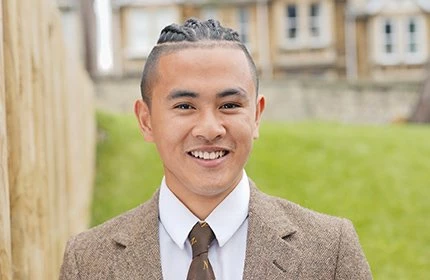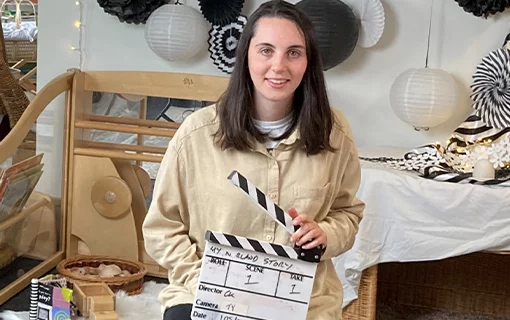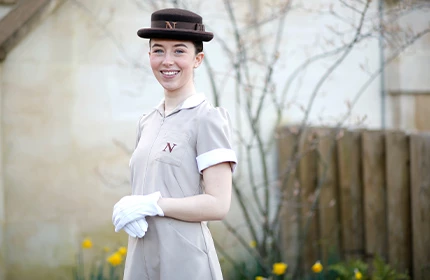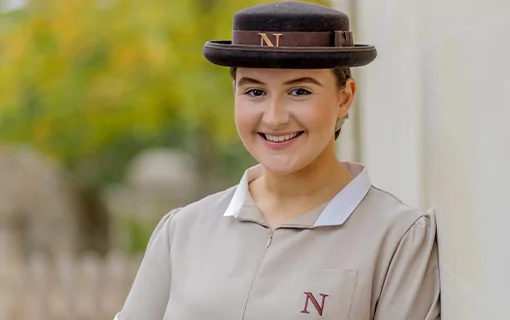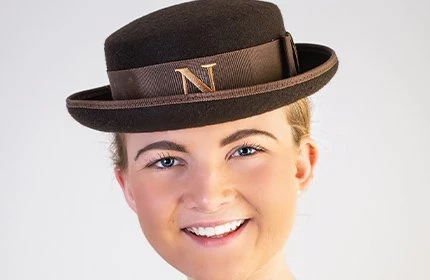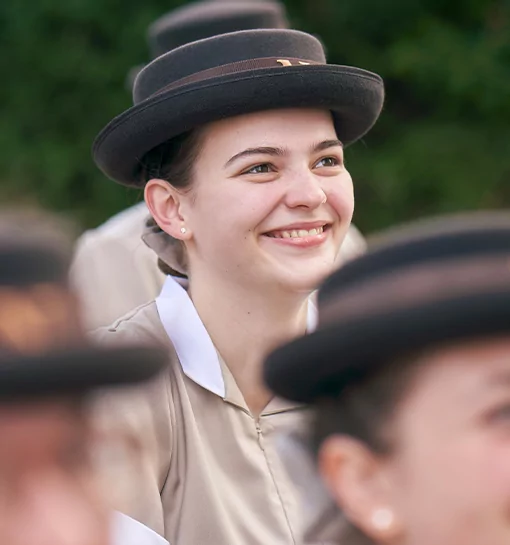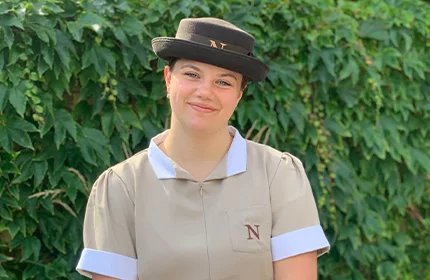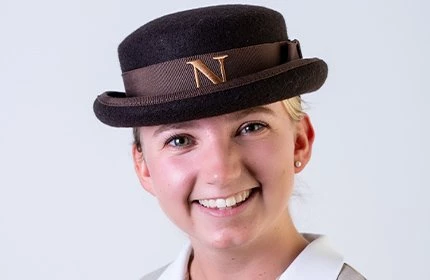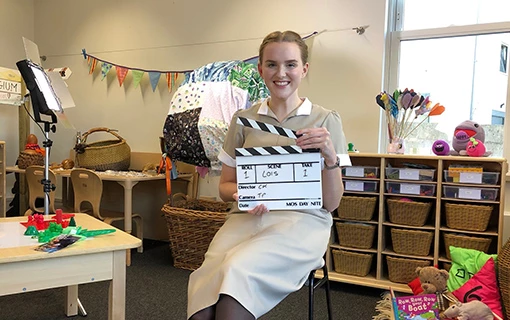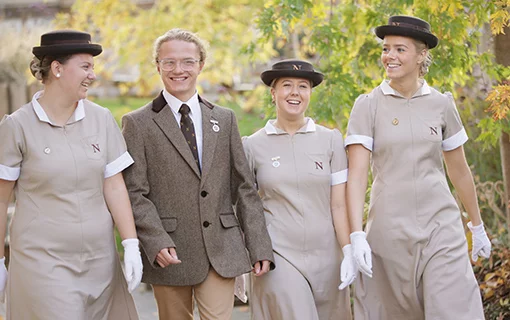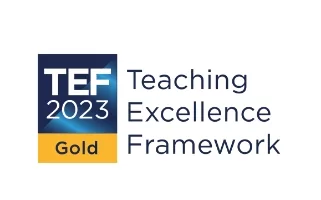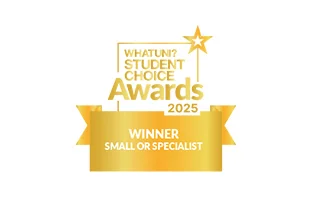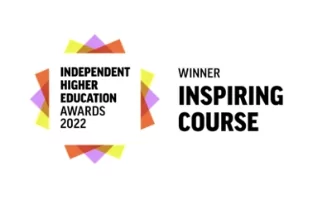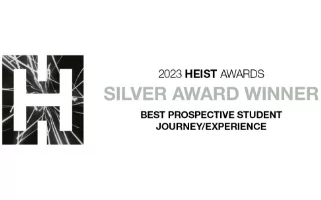Early Childhood Education and Care, BA Hons, and Norland diploma
Why choose Norland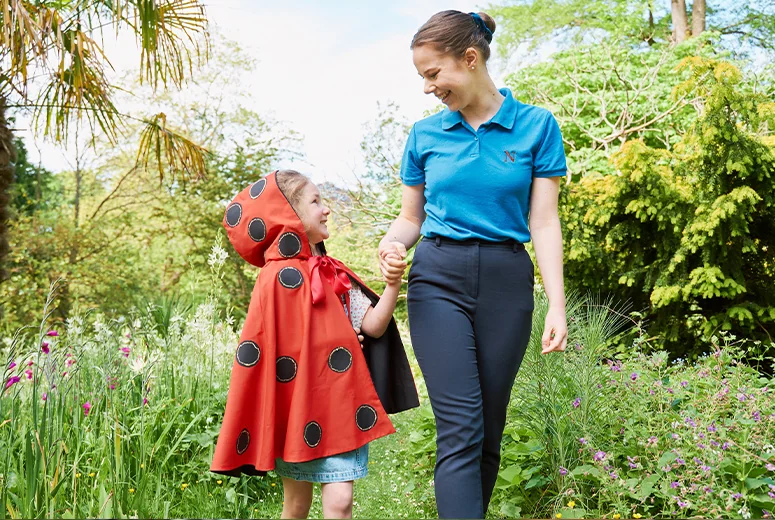
BA (Hons) Early Childhood Education and Care degree and skills-based professional diploma
- As a national centre of excellence, our gold-standard training blends academic theory with practice to ensure you graduate fully qualified with extensive early years knowledge, practical skills and a wealth of hands-on experience.
- You’ll study two distinct and fully integrated qualifications that are unique to Norland: a BA (Hons) in Early Childhood Education and Care degree and the prestigious Norland diploma.
- Over a third of your time will be spent gaining practical experience on placement (1,265 hours) in a minimum of eight different early years settings including a 25-hour newborn experience.
- On completion of the degree and placements, you’ll gain industry-recognised Early Childhood Graduate Practitioner Competencies (ECGPC) status in both early childhood academic knowledge and practice skills.
- In your fourth year, you’ll spend 12 months as a probationary nanny in paid full-time employment that we find for you in order to complete the Norland diploma and earn the prestigious professional title Norlander/Norland Nanny.
- You’ll receive employability focused training. We are Gold-rated for our outstanding student outcomes (TEF 2023) and were named the top UK university for graduate outcomes (Whatuni, 2021) in recognition of our focus on graduate employment.
- As a fully qualified graduate Norland Nanny, you’ll have access to our dedicated employment agency, your pick of jobs, above average graduate salaries and lifelong continuing professional development (CPD) opportunities.
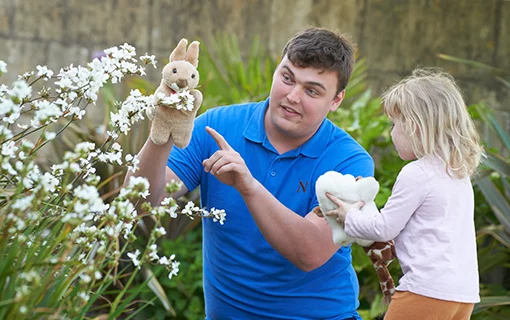
Course details
Duration
3 years full-time
Plus 1 year in full-time salaried employment as a Newly Qualified Nanny to complete the Norland diploma
Tuition fees
£17,364 (2025/26) — UK students
£20,021 (2025/26) — International students
Start date
September 2025
Course level
Undergraduate
Qualifications
BA (Hons) Early Childhood Education and Care and Norland diploma
UCAS institution code
N52
UCAS course code
X310
What will I study?
This course provides an unrivalled opportunity to develop your skills, knowledge and understanding of the early years.
Watch our Vice Principal and Head of Learning, Teaching and Research Dr Rebecca Digby provide an overview of our degree and diploma course at our most recent virtual open event.
Our BA (Hons) Early Childhood Education and Care degree is a three-year full-time undergraduate degree course
Our lecturers have a passion for this subject area and considerable professional and academic experience in education and working with families. Their teaching draws on many disciplines including psychology, neuroscience, child health, philosophy, social sciences and education. Guest speakers are regularly invited to Norland to give you an opportunity to listen to experts already working in the field.
National industry-recognised Early Childhood Graduate Practitioner Competencies (ECGPC) are integrated throughout the degree and placements. On completion, you will be a recognised Early Childhood Graduate Practitioner in both early childhood academic knowledge and practice skills, further enhancing your employability and career progression.
Running alongside the degree and for a fourth year following completion of the degree is the prestigious Norland diploma. This qualification will prepare you for all the practical aspects of the care and development of young children as well as critical professional and life skills.
The final module of the diploma is the Newly Qualified Nanny (NQN) year, a 12-month probationary nanny post in paid full-time employment that we find for you and support you throughout. No tuition fees are payable for this final fourth year in employment.
Learn more about the modules you'll study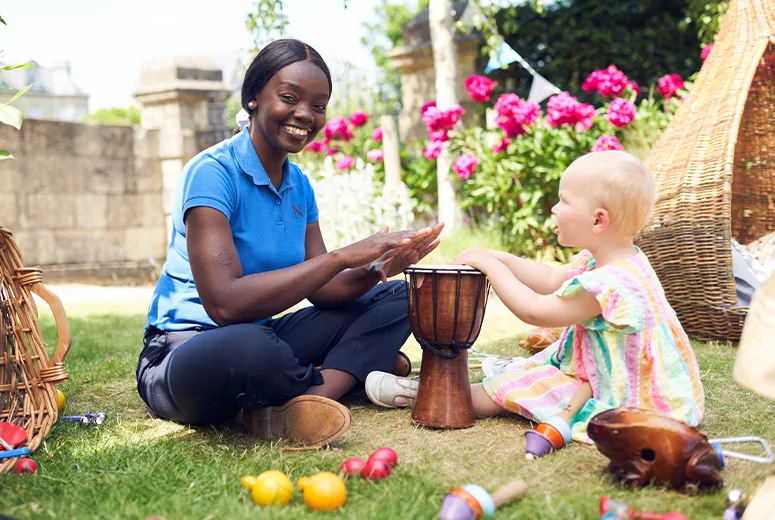
How is the course structured?
Each of the three years is divided into three trimesters with your time split between campus-based training and placements. You will spend around 35% of your time (34 weeks) gaining hands-on experience in a wide range of settings – a minimum of eight placements over the three years.
In the third and final year of the degree, you will also be required to complete a work-based project on an early years topic of your choice. During the summer trimester of the third year, we focus on teaching you skills which will be relevant to your future employment. Among others, this includes first aid training, baby massage, employment contract advice, interview techniques, driving in arduous conditions and security training delivered by former military intelligence officers.
There are a number of different assessment methods for the degree and diploma courses at Norland. These include essays, presentations, vivas, portfolios, displays and a work-based project.
Find out how you will learn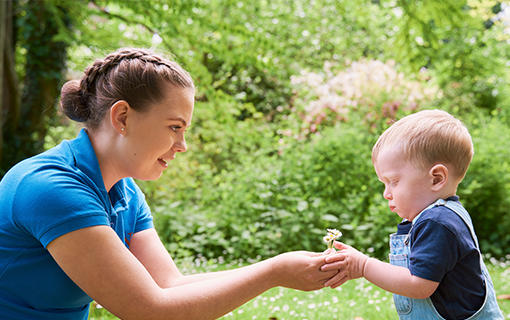
It's all well and good doing the practice and it's all well and good having the knowledge and knowing the theory, but the real magic comes when you put those two things together. That's what Norland gives you... When you bring those two things together, that's when you get something really special.Lucy, Norland Nanny Watch Lucy's story
Programme specifications and course map
BA (Hons) Early Childhood Education and Care programme specification
View BA (Hons) degree programme specificationNorland diploma programme specification
View diploma programme specificationDegree and diploma course map
View degree and diploma course mapProgramme aims
BA (Hons) Early Childhood Education and Care
- Equip students with the necessary professional leadership, management and practical skills to work in a variety of early childhood contexts, with a specialism in home-based childcare.
- Facilitate the application of in-depth and current knowledge to allow students to work effectively, confidently and ethically in a child-centred way with babies and young children; drawing on the latest multidisciplinary research and contemporary practice.
- Instil in students a respect for – and an appreciation of – the importance of diversity inclusion, society and culture in relation to the growth and development of babies and young children.
- Facilitate the application of theoretical knowledge to real world experiences; providing high quality early childhood education and care for babies and young children and support for their families, with an ethos of mutual respect and understanding, and a loving pedagogy.
- Support students to become reflective practitioners with a critical understanding of the diverse worlds of babies and young children, and an awareness of how early childhood experiences shape their lives.
- Support students to reflect critically and develop their own education and childcare pedagogies, theory and leadership capacities, by engaging with debate and discourse with reference to multidisciplinary research, legislation, policy and international perspectives.
- Equip students with the skills to manage the wellbeing of both themselves and the babies and young children in their care, and the tools to support young children to co and self-regulate across the many transitions which babies, children and their families experience.
- Equip students with an awareness of sustainability and ecological practices in early childhood and education contexts, both for themselves and the babies, young children and families with whom they work.
Norland diploma
- Support students to work safely and skilfully in a variety of early years environments, including home-based education and care.
- Support students to engage fully with the Code of Professional Responsibilities and demonstrate the attributes required to uphold the professionalism expected of a Norlander.
- Equip students with the practical skills to work effectively and confidently with babies, infants and children aged 0–8 and their families, with a specialism in 0-to-36-month-olds.
- Support students to provide high-quality education and care for babies, infants, children and their families with an ethos of mutual respect, adaptability, understanding and professional love.
- Equip students with a respect and appreciation of different early childhood experiences and the way these can shape the lives of babies, infants and children.
- Support students to successfully regulate their own wellbeing as a professional practitioner.
- Provide students with the skills to support the babies, infants, children and families with whom they interact to co- and self-regulate across the many transitions they experience.
View the course programme specifications via the links above to see the learning outcomes for the degree and diploma.
World-famous exceptional early years training
Comprehensive training and extensive learning opportunities
Benefit from comprehensive training, small class sizes and a range of learning techniques designed to help you succeed.
View teaching methodsA welcoming, close-knit and nurturing environment in Bath
You’ll experience exceptional teaching and support, small class sizes and a top university student experience.
View supportA wealth of placement experience in multiple settings
Experience the real world with hands-on placements with families and at hospitals, schools and nurseries.
View placements100% guaranteed employment opportunities
As a Norlander, you'll benefit from 100% guaranteed employment opportunities and lifelong support through the Norland Agency.
View career pathways